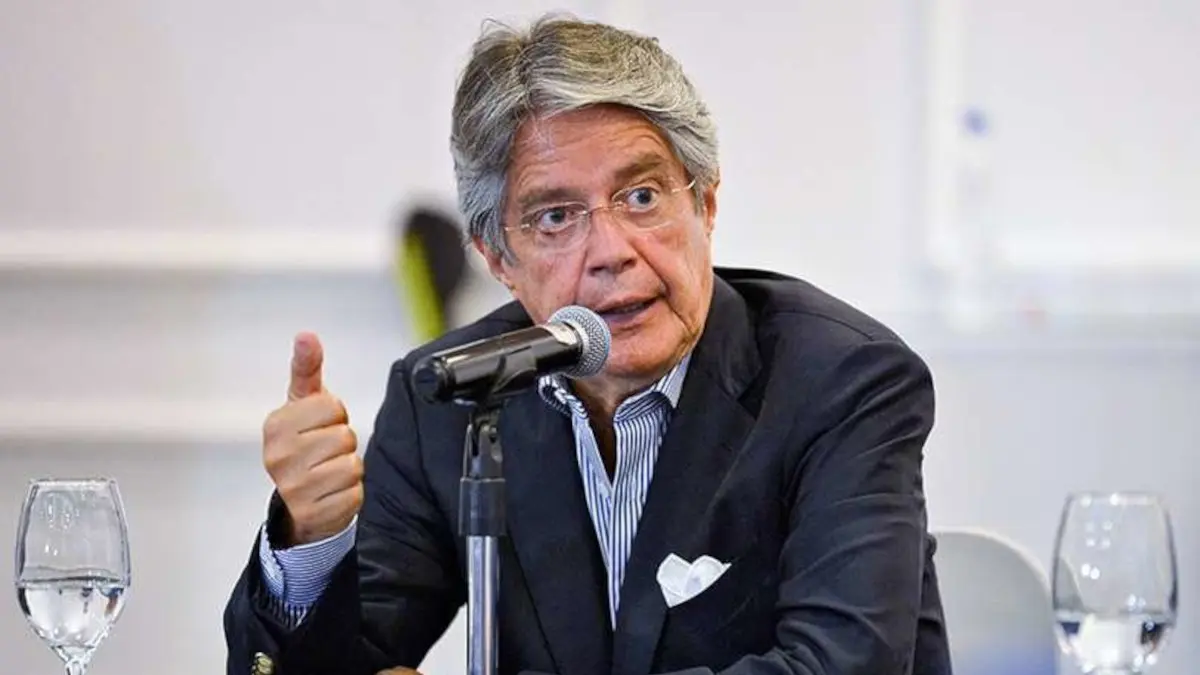Ecuador's president dissolves parliament

Ecuador's president, the conservative Guillermo Lasso, decreed on Wednesday in the midst of the impeachment trial against him to dissolve the National Assembly (Parliament), of opposition majority, and call early general elections, so that he will govern by decree until his successor takes office.
In a message to the nation, Lasso announced this dissolution through the legal mechanism known as "cross-death" due to the "serious internal and political commotion" in the country, after appearing before the Assembly on Tuesday to make his defence plea against the opposition's accusation of embezzlement (embezzlement).
The legal figure known as "cross-death", contemplated in the 2008 constitution, allows him to dissolve parliament instead of waiting for the second day of debate that was to take place in the chamber to subsequently vote on the motion of censure, in which 92 votes are required to remove him, equivalent to two-thirds of the hemicycle.
Mensaje de las Fuerzas Armadas y la Policía Nacional a los ecuatorianos.#ElPuebloDecide https://t.co/IydBd1KO1z
— Presidencia Ecuador 🇪🇨 (@Presidencia_Ec) May 17, 2023
"Serious political crisis"
"Ecuador needs a new political and social pact that will allow it to emerge from the serious political crisis in which it finds itself and which, unfortunately, is deepening every day," Lasso said at the beginning of his message.
He stressed that the solution must put an end to "an irrational and useless confrontation" and pointed out that it is not possible to move forward and face the profound challenges "to which we are subjected by insecurity and terrorism with an Assembly whose political project is to destabilise the Government, democracy and the State".
He commented that, in the last two years, "a sector of national politics has tried to depose the democratically elected government".
Lasso added that the destabilising project "went up a level with the blocking of legislative initiatives presented by the Executive" and affirmed that "all the efforts of the legislative branch are focused on destabilising the government with an unfounded impeachment".
"They are promoting an alleged crime of embezzlement by omission that does not exist in our legislation, with which they want to ensure that I am politically responsible for not having acted in the face of an alleged case of corruption," he said of the opposition's accusations.
For the president, it is "a process without evidence, contradictory, confusing, illegal and illegitimate, it is the mechanism to remove the president from office".
"The accusers have been obsessed with bringing down my government, driven by a superhuman rancour. However, they have been unable to find any evidence against me because there is nothing to find, absolutely nothing," he stressed.
The president said that he has made an effort "to make political dialogue the tool that guarantees governability (...), but there are no limits to the attacks on this government's administration".
As an example, he said that the opposition has activated 14 political trials of ministers "to generate instability in the cabinet and hinder the work of the government".
He considered this to be "a constant obstruction that has generated a serious political crisis and internal commotion, which is reflected in Ecuadorian society's almost total lack of confidence in the Assembly".
"Sign decree"
Lasso assured that, "to provide a constitutional way out", he decided to apply Article 148 of the Constitution of the Republic, which grants him the power to dissolve the National Assembly "due to serious political crisis and internal commotion".
In addition, he asked the National Electoral Council to immediately call for legislative and presidential elections for the rest of the respective periods.
"This is a democratic decision, not only because it is constitutional, but also because it gives the Ecuadorian people back the power to decide their future in the next election," he added, indicating that this allows the government to focus all its efforts on attending to the needs of the Ecuadorian family.
"As of today, without blockades, the national government will issue a series of decree laws that will comply with the sovereignly expressed mandate," he said, adding that he has already signed the first decree law of economic urgency to reduce taxes and strengthen the economy.
Lasso stressed that public services will continue to operate normally, that the Armed Forces and the National Police will continue to guarantee security and that the private sector "has all the guarantees to develop its activities and continue contributing to the growth and development of the country".








